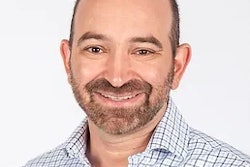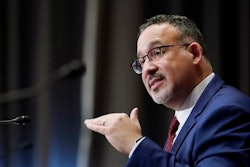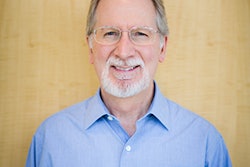It was coincidental that the American College Health Association’s (ACHA’s) Gun Safety Task Force met shortly after the Michigan State University shooting earlier this month on Feb. 13, said Dr. Keith Williamson, co-chair of the task force and medical director at the Vinson Health Center at Midwestern State University in Wichita Falls, TX.
 Dr. Keith Williamson, co-chair of the ACHA Gun Safety Task Force and medical director at the Vinson Health Center at Midwestern State University.
Dr. Keith Williamson, co-chair of the ACHA Gun Safety Task Force and medical director at the Vinson Health Center at Midwestern State University.
ACHA’s Gun Safety Task Force, five doctors and scholars from institutions across the nation, works to “come to grips with this phenomenon in society, with the ultimate goal being to understand it and diminish its occurrence,” said Williamson. “We are working to come up with some sort of understanding that will help provide guidance for ACHA when they have to deal with heart and mind events surrounding a shooting.”
While shootings on campus are extremely rare, said Williamson, the mental health and wellbeing of students, faculty, and staff can be deeply impacted by these events, which is why it is crucial that institutions of higher education respond to these incidents.
“The core mission of higher education is to educate our young people and put them into leadership roles for our society in the future,” said Williamson. “If [those in higher education] cannot focus on that, the institutional core mission is disrupted.”
Between 2013 and 2021, college students’ rates of depression and anxiety have increased by 135% and 110% respectively, according to research conducted by Boston University in 2021. There are many potential contributing factors to this increase, including financial concerns, the pandemic, and an overall sense of being unsafe, said John Richter, director of public policy at the Mental Health Association in New York State (MHANYS). MHANYS has been working to raise mental health awareness in the state since 1960.
But most suggested causal reasons for this increase need further study, said Richter. What experts do know is that mental illnesses are blamed as the reason for mass shootings, which further spreads stigma and a misunderstanding of mental health.






















